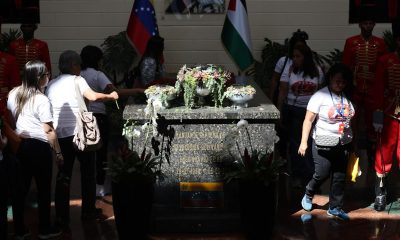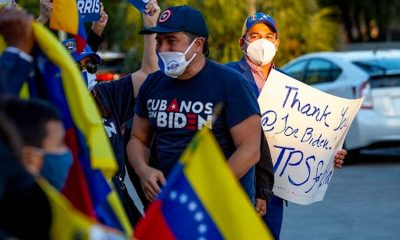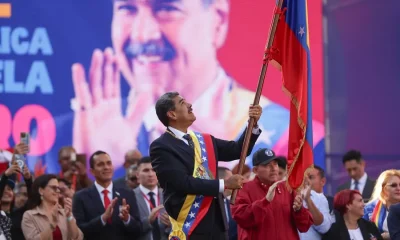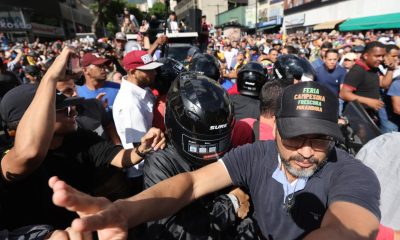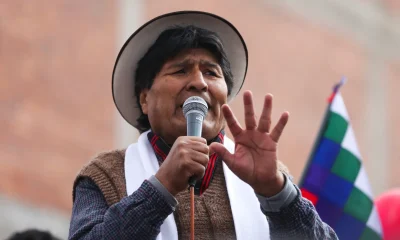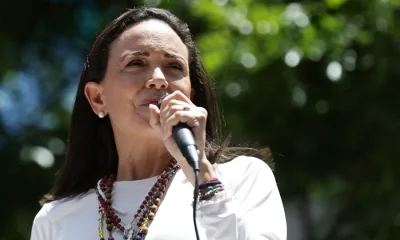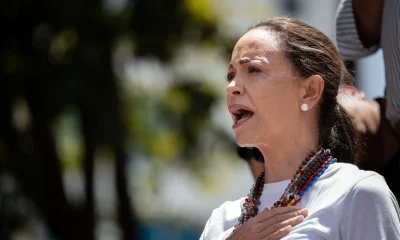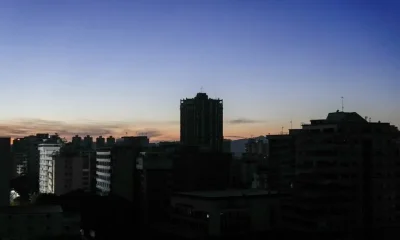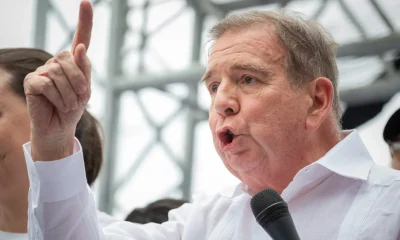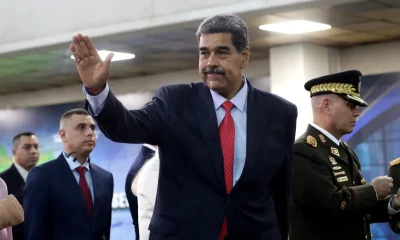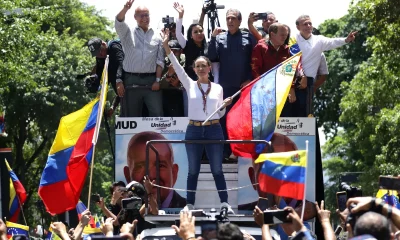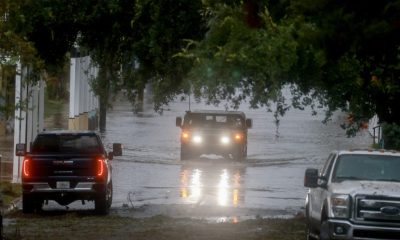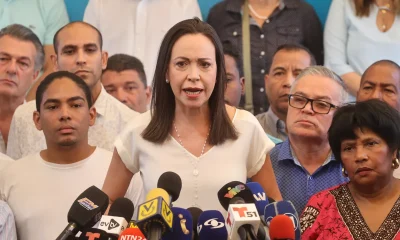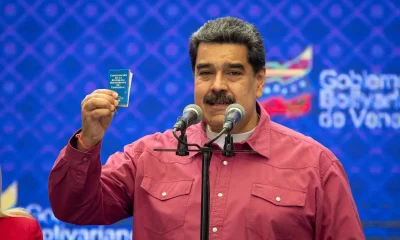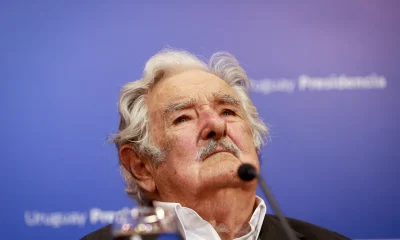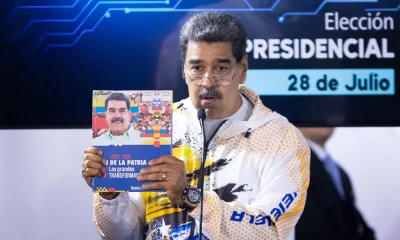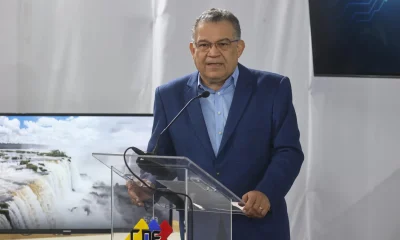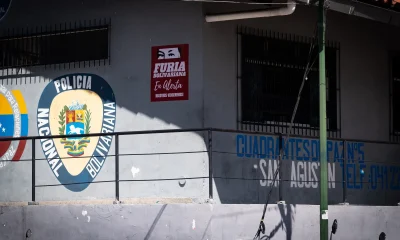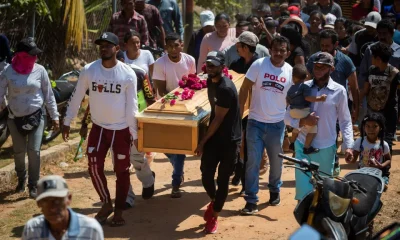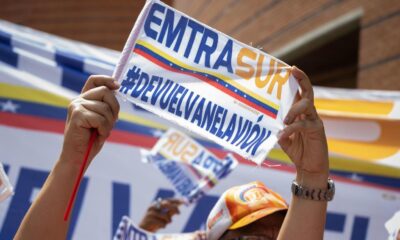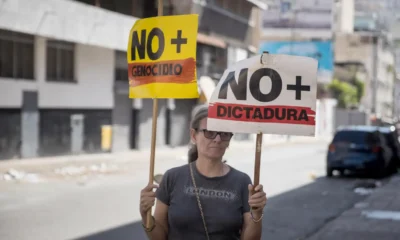International
Venezuela installs 99 % of machines for referendum drill
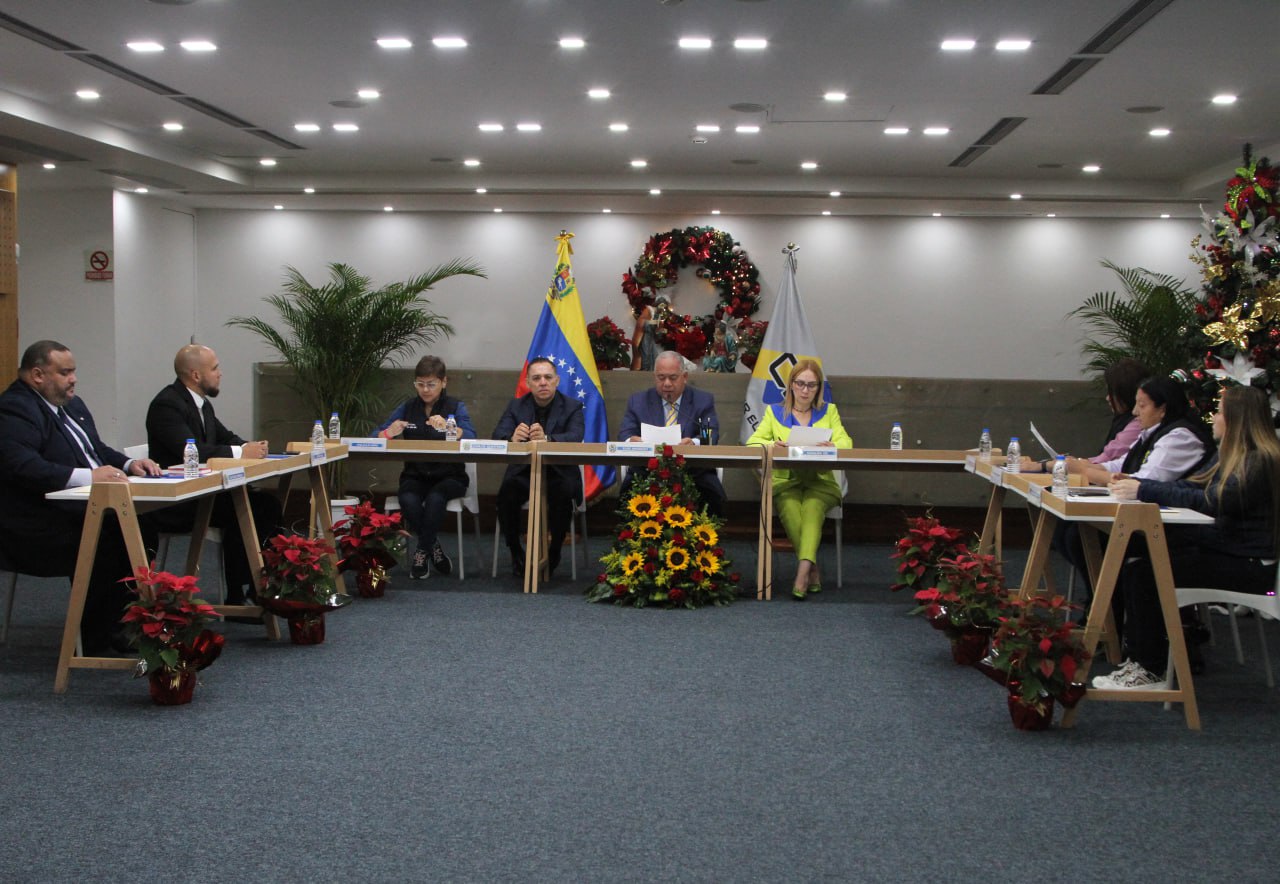
November 18 |
The National Electoral Council (CNE) of Venezuela communicated this Friday that the Electoral Power has installed 99 percent of the electoral machines for the simulation of the consultative referendum in defense of the Essequibo, scheduled for this November 19.
The president of the National Electoral Council (CNE), Elvis Amoroso, informed that the decision of the Supreme Court of Justice (TSJ) will be respected, in which it granted the injunction action filed to protect the right of Venezuelans to elect and protect with their vote the inalienable rights over the Essequibo Guayana.
Amoroso detailed that “80 percent of the electoral schedule presented to Venezuelan men and women has been complied with so far. Ninety-nine percent of the electoral machines have been installed for the simulation of the consultative referendum to be held on November 19”.
Likewise, he detailed that everything is ready for the fulfillment of 100 percent of the foreseen schedule, with guarantees of legal transparency, necessary for the development of the electoral process.
“All the necessary adjustments are being made so that all the Venezuelan people may participate and know everything related to this December 3 process to defend the Venezuelan Essequibo”, added the official.
Likewise, he referred that high technology is available and explained that electoral centers will be set up in all the municipalities of the country in order to familiarize people with the process of the Consultative Referendum for the Essequibo.
In this sense, the Electoral Power will travel all over the country and will meet with political organizations and unions in order to familiarize them with this electoral process.
The President of the National Electoral Council (CNE), Elvis Amoroso, also informed that they received the sentence of the Constitutional Chamber of the Supreme Court of Justice (TSJ), which declares the amparo action in favor of the referendum introduced by the National Assembly of 2020 to be admissible.
Amoro declared that the request for protection of the consultative referendum of the Essequibo of December 3, an area in dispute with Guyana for more than 100 years, was admissible.
The TSJ ruled that “there will be no validity or legal effectiveness” in the national territory, decisions or acts carried out by persons or states that prevent or hinder the referendum to be held on December 3.
The judicial body assured that the measure was intended to protect the referendum from any foreign act or decision, while awaiting a resolution of the International Court of Justice (ICJ).
The TSJ summoned the Venezuelan institutions not to recognize these acts, in case they occur, and instead, ordered the CNE to continue with this process that has no binding character and does not enclose in itself an immediate change in the disputed territory of almost 160,000 square kilometers.
“To continue with the protection of the rights and interests of the Republic around this historic cause in the defense of the sovereign rights over the Essequiba Guiana, as well as its independence, freedom, sovereignty, territorial integrity and self-determination”, Amoros stressed.
By means of sentence 1470, the TSJ ordered the CNE to continue in its competences with the actions that guarantee the nationals the right of political participation, in the consultative referendum to be held on December 3, 2023.
The Supreme Court orders President Nicolás Maduro to “continue with the protection of the rights and interests of the Republic regarding this historic national cause in the defense of its sovereign right over the Essequiba Guyana”, in accordance with the provisions of Article 152 of the Magna Carta.
International
Florida judge sets 2027 trial in Trump’s $10 billion lawsuit against BBC

A federal judge in Florida has scheduled February 2027 for the trial in the lawsuit filed by U.S. President Donald Trump against the BBC, in which he is seeking $10 billion in damages for defamation.
Trump accuses the British broadcaster of airing a misleading edit of a speech he delivered on January 6, 2021, which, he says, made it appear that he explicitly urged his supporters to attack the U.S. Capitol in Washington.
The president filed the suit in December in federal court in Florida, alleging defamation and violations of a law governing business practices when the program was broadcast ahead of the 2024 election.
Trump is seeking $5 billion in damages for each of the two claims.
Lawyers for the BBC unsuccessfully asked the court to dismiss the case, arguing that Trump had not suffered a “legally recognizable harm,” since the investigative program Panorama, which included the edited footage, aired outside the United States.
International
Head-of-state diplomacy key to guiding China–U.S. ties, Beijing says
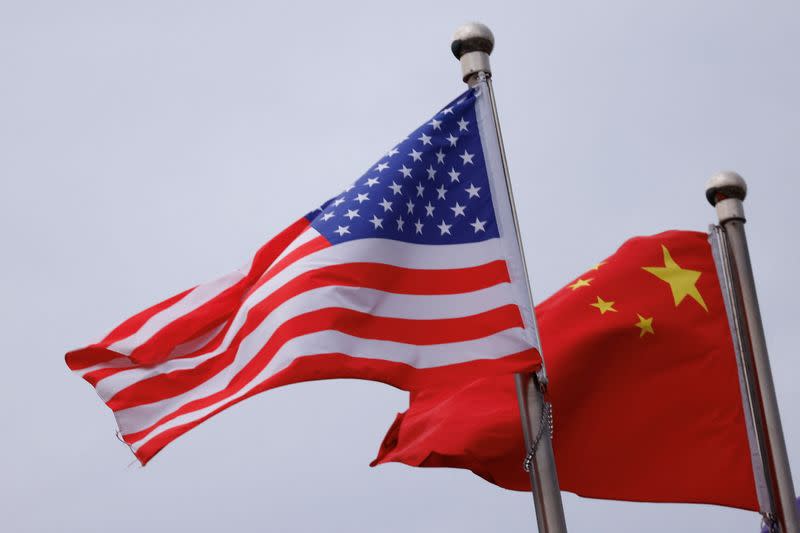
Head-of-state diplomacy plays an irreplaceable strategic guiding role in China–United States relations, Chinese Foreign Ministry spokesperson Lin Jian said on Thursday during a regular press briefing, when asked about high-level exchanges between the two sides.
Lin added that in a recent phone call, U.S. President Donald Trump once again expressed his intention to visit China in April, while Chinese President Xi Jinping reiterated his invitation.
Both sides remain in communication regarding the matter, the spokesperson said.
Lin noted that the essence of China–U.S. economic and trade ties lies in mutual benefit and win-win outcomes.
“Both parties should work together to implement the important consensus reached by the two heads of state, injecting greater certainty and stability into China–U.S. economic and trade cooperation, as well as into the global economy,” he said.
International
Trump administration to end special immigration operation in Minnesota
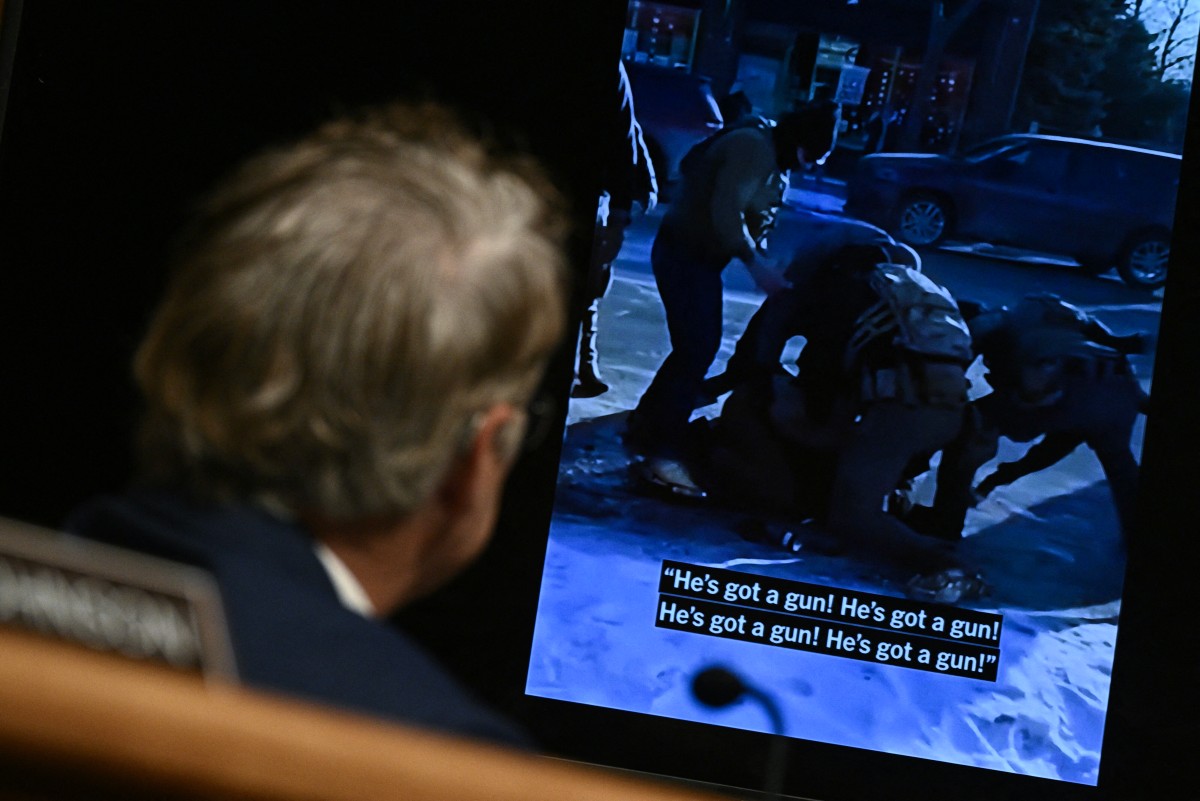
The administration of Donald Trump is bringing to a close its special operation targeting illegal immigration in the northern state of Minnesota, border czar Tom Homan announced Thursday, following weeks of unrest and the fatal shootings of two activists by federal agents.
Thousands of federal officers had been deployed to Minnesota in December to carry out large-scale raids against undocumented immigrants.
The operations triggered strong reactions from residents and advocacy groups, leading to daily confrontations and the deaths of two people who were shot by federal agents.
“I proposed, and President Trump agreed, that this special operation should end in Minnesota,” Homan said during a press conference in the state capital, Minneapolis.
“A significant drawdown began this week and will continue into next week,” he added.
Homan indicated that similar enforcement efforts could be launched in other cities.
“Next week we will redeploy the agents currently here back to their home stations or to other parts of the country where they are needed. But we will continue to enforce immigration laws,” he said.
-

 Central America4 days ago
Central America4 days agoGuatemala isolates Barrio 18 leader after attacks that killed 11 police
-

 International2 days ago
International2 days agoU.S. Health Department says CDC grants no longer match agency priorities
-

 International1 day ago
International1 day agoOver 50 Civil Groups Urge House to Impeach DHS Secretary Kristi Noem
-

 International2 days ago
International2 days agoICE Arrests Reach 379,000 Under Trump, Testimony Shows Amid Minnesota Shootings
-

 Central America1 day ago
Central America1 day agoGuatemala to Phase Out Longstanding Medical Cooperation Agreement with Cuba
-

 International2 days ago
International2 days agoDespite homicide drop, overall deadly violence remains high in Mexico: study
-

 International2 days ago
International2 days agoSheinbaum Urges Mexico to ‘Jealously’ Guard Sovereignty at Air Force Anniversary
-

 International2 days ago
International2 days agoMEPs Approve Plan That Could Fast-Track Rejection of Some Asylum Claims
-

 International2 days ago
International2 days agoJet Fuel Crisis Hits Cuba: Flights Disrupted, Air Canada Cancels Services
-

 International1 day ago
International1 day agoNew York’s New Archbishop Names Óscar Romero as His Favorite Saint
-

 International2 days ago
International2 days agoMexico Rises Slightly to 141st in Global Corruption Perceptions Index 2025
-

 International8 hours ago
International8 hours agoHead-of-state diplomacy key to guiding China–U.S. ties, Beijing says
-

 International8 hours ago
International8 hours agoTrump administration to end special immigration operation in Minnesota
-

 International8 hours ago
International8 hours agoFlorida judge sets 2027 trial in Trump’s $10 billion lawsuit against BBC
-

 International1 day ago
International1 day agoExclusive Tucson Neighborhood Shaken by Disappearance of Savannah Guthrie’s Mother
-

 International2 days ago
International2 days agoChile Unveils Latam-GPT to Give Latin America Its Own AI Model





























